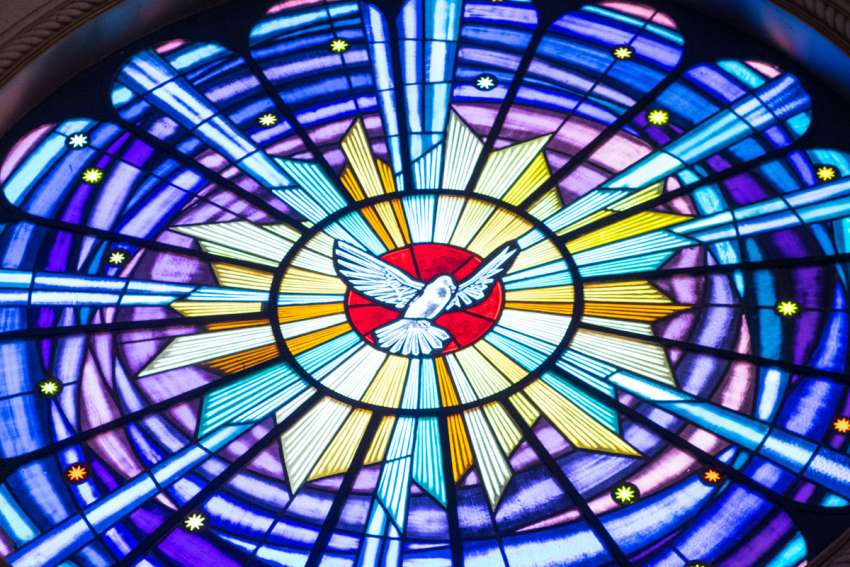What does this look like? We don’t have to imagine the answer or take refuge in a disincarnate reality. It’s before our eyes, if we have Spirit-filled eyes to see.
It can look like the face of Charles de Foucauld, recently canonized. His is an iconic face, carved out by his life of ever-increasing love and service to the poorest of the poor. He went alone to the desert to care for the souls and bodies of the Tuareg people as a Catholic priest. In an image taken a few days before he was killed by a bullet, his face is lit from within.
It can look like Pat, a young professional in the working world, who embraces the single life as a Christian vocation even while seeking marriage and parenthood. Pat too has a face that can radiate the light of the Spirit, amidst the struggles of maintaining a regular prayer life, finding ways to serve others in both work and volunteering, and being chastely alive in the body. Temptations such as bitterness, self-doubt, pornography and materialism abound, but the sacramental life of the Church accompanies and supports Pat in a spiritual path that’s neither easy nor applauded but is life-giving.
The Eastern church speaks of the “uncreated light” — its effect no less visible than that of sunlight, lighting up everything from within. This uncreated light becomes clearer as we enter into life in the Holy Spirit, the Lord and Giver of Life, with the Father and the Son one God (see Nicene Creed). Life in the Spirit is life without end, that starts in time. It infuses soul and body, offering a right relationship with both and giving us the means to direct our own lives well.
Our spirit receives personally, in Confirmation, the Person of the Holy Spirit, completing our baptism. We become adopted children of God, the Spirit making us heirs of Christ (Romans 8). Even the one who dies alone in the desert like St. Charles de Foucauld, killed by one of those he came to serve, is not alone. He belongs to Christ and to the Church. There’s no divine Spirit except the Spirit who enlivens the Church, in all its human imperfections.
What meaning does this have in our daily lives? It means we don’t need to invent a different church to live spiritual lives. We need to receive the Spirit who is poured out in this one, holy, catholic and apostolic Church.
A charismatic conference I once attended culminated in Mass at an outdoor amphitheatre. Not being a “charismatic” myself I was shy, a little nervous that this life of the Spirit was something different from the life of Christ I’d already committed to. Trying to divide Christ from the Spirit has disastrous effect (see Matthew 12:31). It happened that during this Mass, just after communion was distributed to thousands of people, a sudden announcement came: in Rome, the Pope had just died. Spontaneously this multitude, lay and clergy, broke into song and the stadium was filled with the sound of prayer for Pope and Church. “There is one body and one Spirit, just as you were called to the one hope of your calling, one Lord, one faith, one baptism, one God and Father of all, who is above all and through all and in all” (Ephesians 4:4-6).
John’s Gospel calls the Spirit the “Paraclete,” translated as advocate or intercessor, exhorter, teacher or comforter. Even in definition the Spirit is hard to pin down, stern and wonderful to experience, enlivening and dynamic, bringing us out of ourselves into our real selves, into participation in the intimate love-relationship of the divine Trinity, one God.
We recognize the life of the Spirit in its “fruits,” namely love, joy, peace, patience, kindness, generosity, faithfulness, gentleness, self-control (Gal 5:22-23). The Spirit doesn’t give us anything but Himself: He is love, joy, peace and the other names we use to express the gift. The gift of the Spirit we receive personally at confirmation, in fulfillment of our baptism, is the giver Himself, and the giving. In the Spirit is the fullness of the gift who is God.
We know the Holy Spirit dwells in the Church. But we do not know where the Holy Spirit does not blow. And so we have a boldness to go to the ends of the world, to the deserts and the cities, and approach every person in this gift.
The Spirit who is sent on mission sends us on mission too, interceding for us in “sighs too deep for words.”
(Marrocco can be reached at mary.marrocco@outlook.com.)


